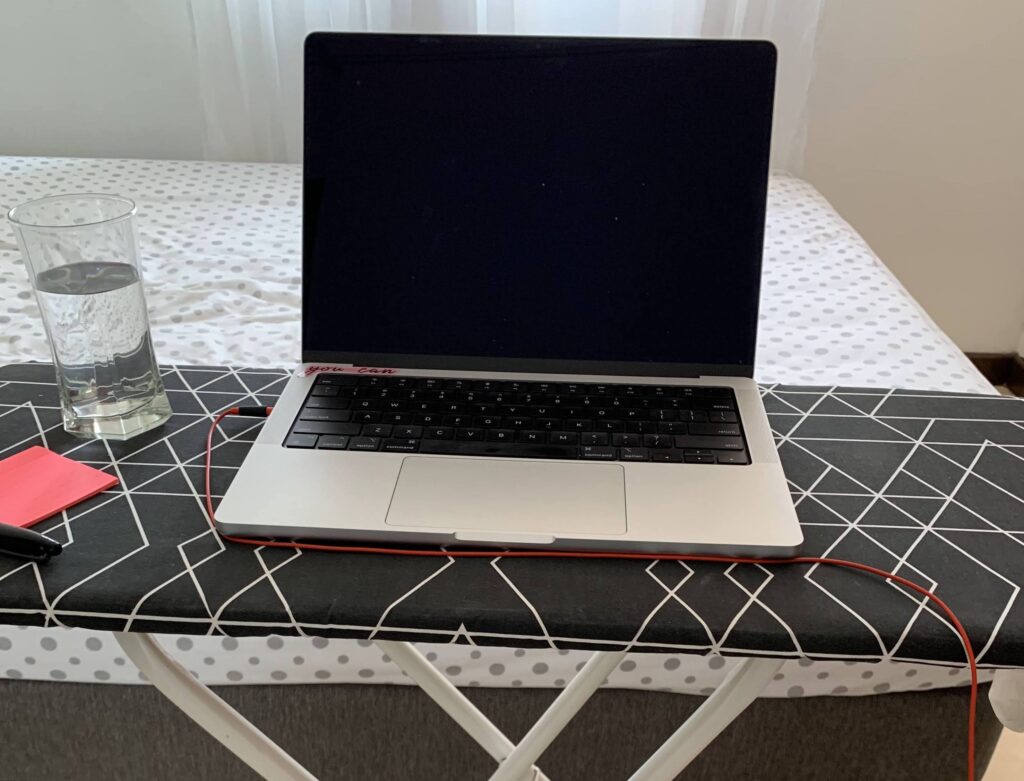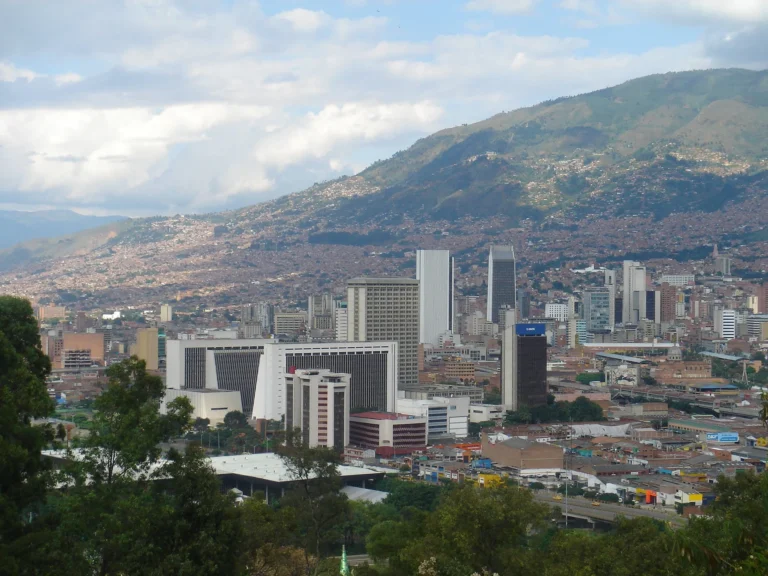Work from Anywhere – the Pros and Cons of Remote Work while Traveling
Jobs that allow you to work from anywhere, or permanent remote work, can come in all levels and paychecks. Digital nomads as self-employed lifestyle bloggers may be hustling to make ends meet. Their struggle is balanced by grinding these long hours from a beautiful beach. For a full-time employed remote worker, whom I’ve named “W-2 Nomad,” the travel dynamic is a bit different. Entrepreneurial freedom is replaced by a boss. Precarious cash flow is replaced by a steady paycheck.
But both are living the remote work dream, free from the confines of an office. Free from the suburbs and timeclocks. Both digital and W-2 nomads seek to become location independent – not waiting for PTO to fulfill their wanderlust, and working from anywhere.
If you’ve dreamed of this traveling-while-working-remotely life, there are some other points to consider. Before you sell all your belongings and book a flight, take a look at these 4 pros and cons of remote work combined with constant travel.
Work from Anywhere! Remote work and travel benefits:
Pro 1. You get to travel and see new places, while working!
You can stay in one place longer than if you had just taken PTO. This gives you more time to explore the culture, and not just hit the main tourist must-sees. Visiting local farmer’s markets, cooking your own food, give you a deeper appreciation for a city than if you only had time to go to restaurants. Attending smaller arts events, and finding parks where the locals hang out – all become open to you when you have more time to explore.
Pro 2. You learn to plan ahead, but also how to roll with the punches.
You may be able to calm your analysis paralysis and embrace that you can’t research your way to the perfectly timed and affordable home/transportation. You become flexible in your work-from-home setup. You accept that a place that looks beautiful on YouTube could be a loud, swampy concrete jungle.
Pro 3. You don’t have to tolerate sub-optimal work-travel situations for long.
You don’t have to stay in a bad situation, because when you’re in constant travel mode, you already know your end date. You can more easily endure non-optimal living situations that you know are temporary. It is easier to handle loud neighbors, sweaty living rooms, broken appliances, etc. when it is just a few more days/weeks. You can use an ironing board for a desk for a little bit of time, knowing there is a full-sized desk in your future. This also makes research and decision-making easier than if you were committing to a year lease.

Pro 4. You meet new people while traveling. Or not.
If you’re determined to meet new people, research groups before you arrive to make the most of your temporary home. Meetup and Facebook are easily searchable for groups- from the broad “Expats in ___ City” to more niche “Women in ____ city” or “Salsa dancing in ____ city.” Find a couple that look interesting to join, read the event or feed to see if they match your vibe, and plan to go to the first event after you arrive. Post in the group what you’d like to do with new friends, and be specific. “I want to go walk in this park on Tuesday afternoon, take pictures, and get dinner. Who would like to join?” will get more traction than “Hi, I am new to the city. Let me know if you want to hang out.” Hold to your commitments, and come with an open mind. Even if the people don’t quite match your style, you will see something new and hear how other travelers are interacting with this new place.
On the flip side, you could accept that this can be a season of self-reflection, with more alone time. Find a park, cafe, or place of worship that allows for quiet meditation. Schedule phone dates with friends, or plan the next stop in a city where you have some connections. Being lonely or sad in a beautiful place can inspire lots of paths.
Remote work and travel drawbacks:
Con 1. You are constantly moving or researching your next destination.
You are continuously packing up or unpacking, using precious weekends or PTO to pack and move between places.
You will always need to be assessing new rentals, new neighborhoods, and price comparing flights or dates. You may find landlords, property managers, or Airbnb hosts that aren’t responsive. Housing terms that change last minute can leave you scrambling instead of enjoying your last days in paradise.
Unless you are the type to plan out your whole year AND book it, you’ll have to spend evenings or weekends planning your next move. The trade-off of seeing more places means you have to figure out how to get there, then spend time in transit.
Con 2. You feel the weight of your stuff while traveling and working.
If you’ve just recently been allowed to work from home, you may be accustomed to corporate desk comforts. An extra monitor (or 2), a detached keyboard with a laptop stand, and a separate webcam all may be mandatory for you to work. However, these can take up all your travel luggage.
You may start cursing the things you brought that you don’t need in the current city, knowing you’ll need them in the next. After you’ve packed and unpacked an unneeded sweatshirt or fun festival wear, you may decide to give it away, then have to re-buy later.
Of course, you can go all-in on the nomad lifestyle and sell it all! But if your wanderlust is to be flexible enough to live in some areas longer, you may have to repurchase things.
Your stuff at home can weigh on you as well. Unless you’ve sold it all, you may have to tend to cars, houses, or storage, which can feel doubly heavy when you aren’t using those items.
Con 3. You aren’t rooted in any community while traveling.
It can feel lonely to be in a beautiful new locale, but not have friends to experience it with. You may try to jump into a group that has already been meeting, but do not have enough time to establish connections. You’re still working full time, and may not have the social energy after work that you would if you were completely on vacation.
Con 4. You aren’t on vacation. You are working.
You’re in front of a computer in a beautiful place. Location-independent work is still WORK. Yes, it is amazing to be in a dazzling new city you’ve only seen on Instagram. But you’re still a 40-ish hour-per-week employee, with obligations, project deadlines, and metrics to hit. Unless you’ve somehow hacked your employer to have low expectations, or you are an efficiency and time management ninja (which you are not, according to this book), you will need to work. This may feel like a constant conflict in your head.
You could try to timezone hack your way into working early mornings or late nights to align with your base time zone and then have hours of the optimal time for exploring.
You can plan your nights and weekends full of excursions, without downtime, to try to make the most of your location. But you may need a night or weekend to chill, as you would in a non-travel life, to restore your energy. This can feel disappointing to use a weekend to rest instead of explore if you’re in “do all the things” vacation mode. FOMO is real.
My advice is to plan in PTO at the end or beginning of your trip. If possible, take long weekends or even more half days, so you can explore AND work, without burning out.
Summary: Work from anywhere means time spent researching (and working) when you’d rather be playing.
After bouncing around the US and a few countries for 2 plus years, I heard plenty of friends or curious new people exclaim, ‘You’re living the dream!” While constant travel is a desire for some people, others would consider constant packing or not knowing where they will be in 5 months to be, well, hell. I wanted to share some of the pros and cons of being full-time employed while traveling, so you can weigh the perks and disadvantages of remote work for yourself. Before you become location-independent and travel long-term, these tips can help you prioritize remote work locations, length of stay, and manage expectations.



